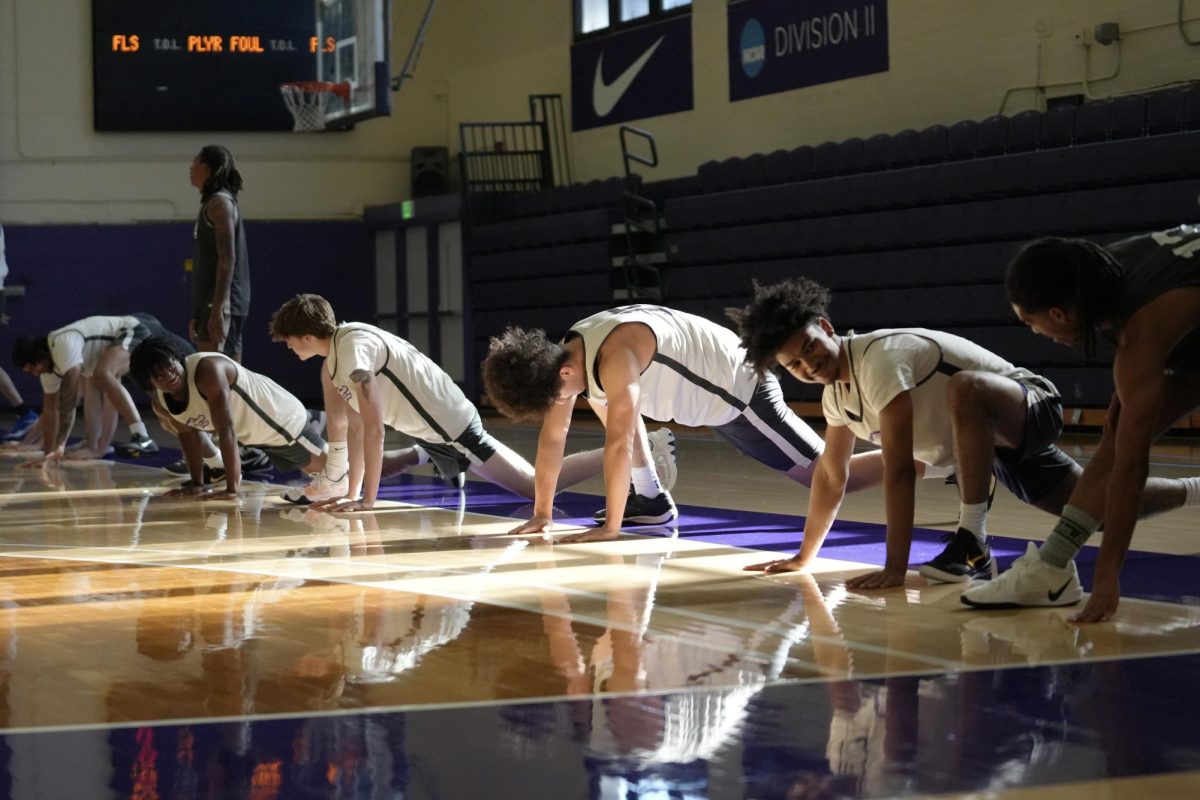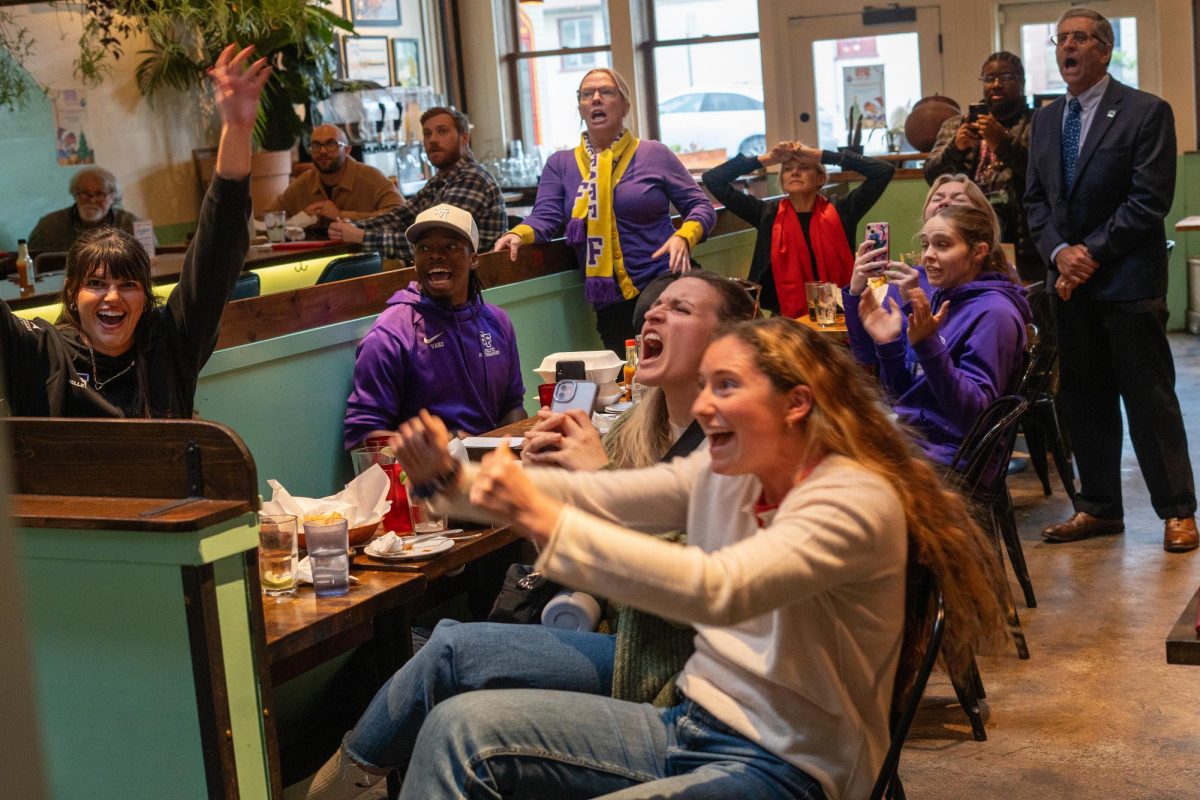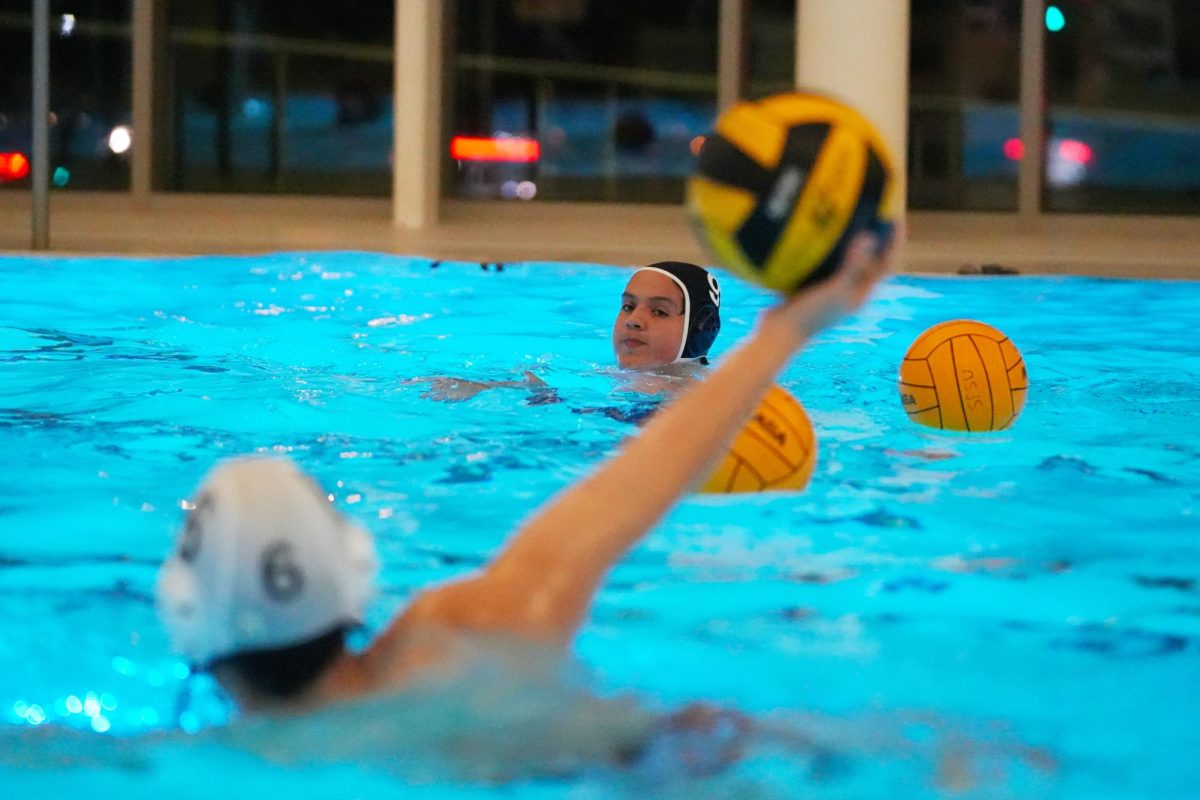Gators’ starting guard Warren Jackson is a team player, but his talent keeps attracting end-of-season individual awards.
Before SF State, the Detroit product played for the Cabrillo College Seahawks, a community college team located in Aptos, California, and in 2013 he was named the Most Valuable Player of their conference and also earned All-State First Team honors as a freshman, a first in Seahawk basketball history.
In his first season at SF State this year, Jackson was named to the All-California Collegiate Athletic Association second team and was also chosen as the CCAA Newcomer of the Year, the first Gator chosen for the award since 2009.
“He was one of the best players in the league at the end of the year,” said head coach Paul Trevor.
But while he may seem happy about his individual recognition, it’s obvious that team accomplishments mean a lot more to him than any individual achievements.
“I mean, it’s good to be recognized as one of the better players,” Jackson said, “But as a team, I wish we did better.”
The men’s basketball team lost in the first round of the CCAA basketball tournament, but overall had a resurgence this season, finishing the year 16-11 after a disappointing 11-15 record last year. A main contributor to that resurgence was Jackson, who led the team in points, averaging just under 11 per game.
So far the only thing stopping Jackson from getting additional awards is injuries. In 2012, Jackson’s first year at Cabrillo, he tore his meniscus during a championship game in a preseason tournament and was forced to sit out the rest of the year. He only played six games.
Jackson had a quick recovery and came back the next year to lead the Seahawks to a 20-9 record, leading the team with 18 points per game while also averaging 3.3 assists and 3.3 rebounds per game.
But tragedy struck again when Jackson tore his ACL playing at an open gym after the season ended in the spring of 2014.
“It was bad,” Jackson said. “It was very depressing. Already going through it one time, and then having to go through it again, this time being even worse.”
Jackson needed surgery on his knee since he tore it fully. The recovery process from an ACL injury can be very long, usually a year for even professional athletes.
Jackson headed back to Detroit, his hometown, to recover, unsure of what was next for his basketball career.
“I wasn’t even thinking about going back to Cabrillo, so then I was just going to be sitting in Detroit, not being able to play basketball,” Jackson said. “It was depressing, not knowing if I was going to play or end up going to school. I just had a lot on my shoulders.”
After Jackson’s freshman year at Cabrillo, he was being recruited by Division I schools, but his second knee injury made most of the schools drop out of his recruitment.
“He was a low-to-mid-level Division I recruit,” Trevor said. “They dropped off after he got hurt. A lot of people dropped off.”
Jackson’s injury proved to be a blessing in disguise for SF State. Current assistant coach Vince Inglima played at Cabrillo from 2002 to 2004, and stayed in contact with the Seahawks current head coach Tony Marcopulos.
They had known about Jackson’s talent since his first season at Cabrillo, but they couldn’t compete with the Division l schools recruiting Jackson.
“I talk to (Marcopulos) all the time and I’ve pursued some of his guys in the past,” Inglima said. “But Warren was really the first one that I felt was a no-brainer.”
The summer had passed when Inglima got a call from Marcopulos. Jackson had decided to come back and play again; he was at Cabrillo rehabbing and taking classes that fall.
The Gators didn’t waste any time – they went to his practices, they had home visits, they gave him a campus tour, and they stayed in constant contact with Jackson.
“We did take a chance on him, but it’s worked out great so far,” Trevor said. “The reality is, if he’s back to health, he’s a high-level player, and he answered that this year.”
But the adjustment from junior college to Division ll wasn’t easy for Jackson, who looked rusty in the offseason after a year off, and he still had to regain confidence in his knee.
“It’s so many talented guys, and you go against so many players, that I was thinking, ‘Dang why (aren’t they) playing Division l?” Jackson said. “That helped me transition to playing against bigger guys.”
Early in the season, Jackson didn’t play as aggressively as Trevor wanted. In his first nine games, Jackson averaged just under nine points.
In time Jackson got the message, and he scored in double digits in 10 of his last 12 games.
Usually, junior-college transfers come to four-year schools with two years of eligibility left. Fortunately for the Gators, they get Jackson for three.
“The exciting thing is, he’s got two more years,” Inglima said. “We feel like we’re going to see a whole other big step next year.”







